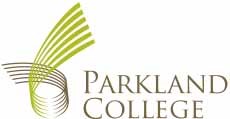Prospective nursing students in Yorkton will have the opportunity to get their full four-year degree at home starting September of this year.
In a joint press conference January 27, the University of Saskatchewan, Parkland College, Sunrise Health Region and the Government of Saskatchewan announced the new distributed learning program.
Representatives from the four partners outlined several benefits to the concept of "learning where you live," which Patti McDougall, U of S vice-provost of teaching and learning said is "central to the vision of the University of Saskatchewan."
The training itself will be delivered jointly with classroom instruction by video from the University's Regina campus and hands-on instruction provided in Sunrise health facilities. The Province is helping fund 15 seats for Yorkton, part of 300 new nursing seats the Sask Party committed to in an attempt to grow the nursing workforce in Saskatchewan.
Delivering the program locally is important in addressing local needs, said Dr. Lois Berry, U of S acting dean of the College of Nursing.
"Learn where you live is about addressing needs in society where they are and, for us in nursing, it's particularly important because if you bring students into an urban setting and teach them nursing, you're teaching them about it in the context of that urban setting and so much of what we do is beyond that," she said.
Berry also pointed out that increased capacity is important not only to
address current needs, but what will likely be an increasing need in coming years.
"The bulk of nurses in this province are over 45 years of age so as they retire there will be significant need for more registered nurses in the system," she said.
Dr. Fay Myers, president of Parkland College, said having the program in Yorkton increases the likelihood of graduates staying in the area.
"We know that from our past graduates and a study we did in 2009, which was an economic impact study of the college and what kind of impact we had within the Parkland region," she said. "Through that economic impact study, we know that 90 per cent of our graduates out of the college stay and live and work in the region."
Suann Laurent, Sunrise CEO, believes it will also encourage more prospective students to pursue higher education because of the reduced costs of studying at home. This, she said, can also lead to better health outcomes for the students themselves.
"It's so important to have education to be able to move people forward and have a healthy lifestyle," she said. "Research has shown that the more education people have, the better outcomes they have for themselves."
Having access to local programs is only part of the picture according to MLA Greg Ottenbreit. In addition to increasing enrolment opportunities and growing the nursing workforce, the government also has tax credits to offset the cost of getting an education for graduates who choose to stay and cash incentives for nurses and nurse practitioners to work in rural areas.
Proof that the incentives are working by the sheer numbers of people taking advantage of them.
"Looking back about four years ago when we put the program in place, what we budgeted, it's consistently gone above budget every year so that just shows that the uptake is huge," he said, adding that it's worth the expense.
"You're always competing with other jurisdictions and other provinces and some of the programs we've put in place, for example the program to help pay back some of the costs of training in underserved areas actually pays dividends," he said. "It's money well spent."



